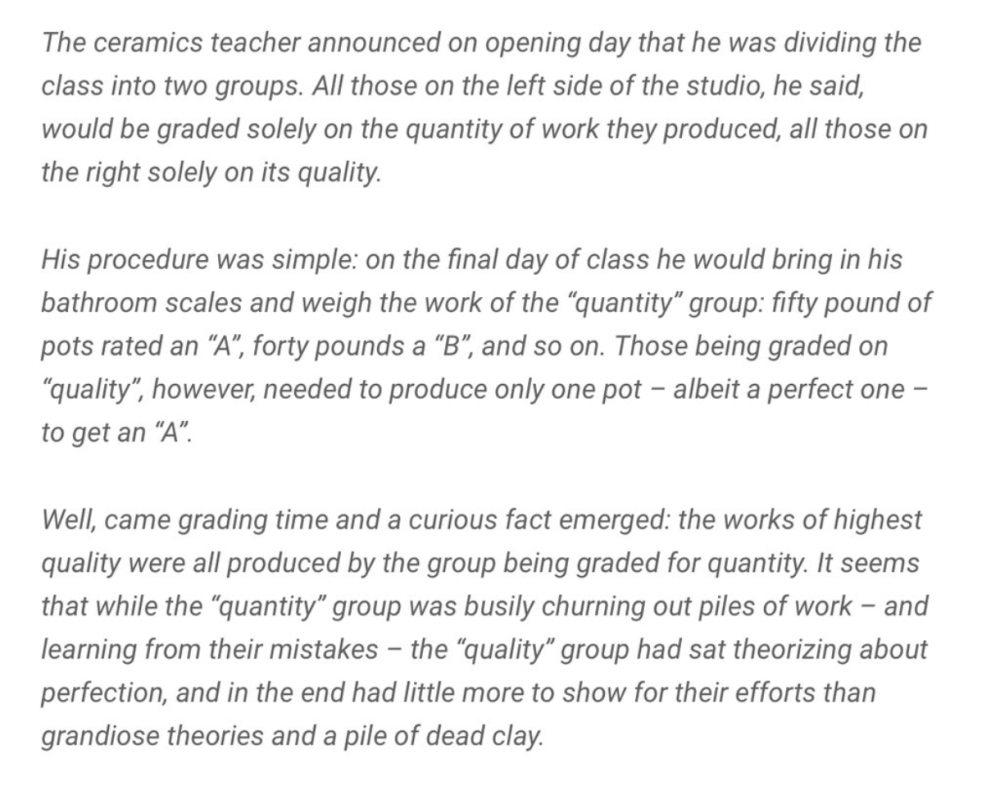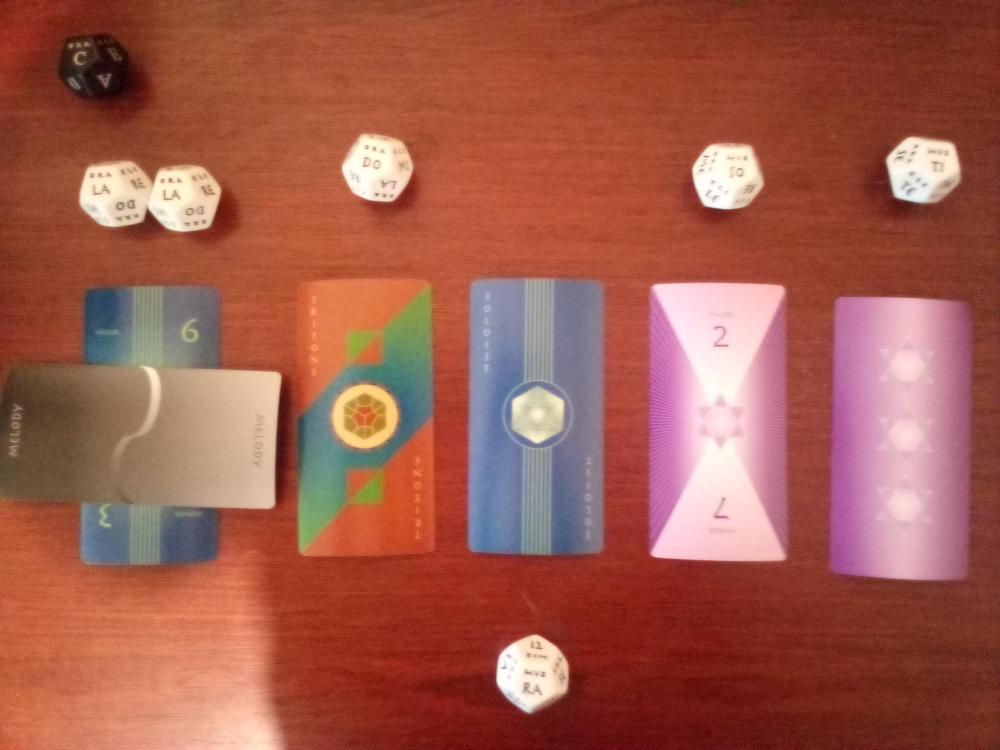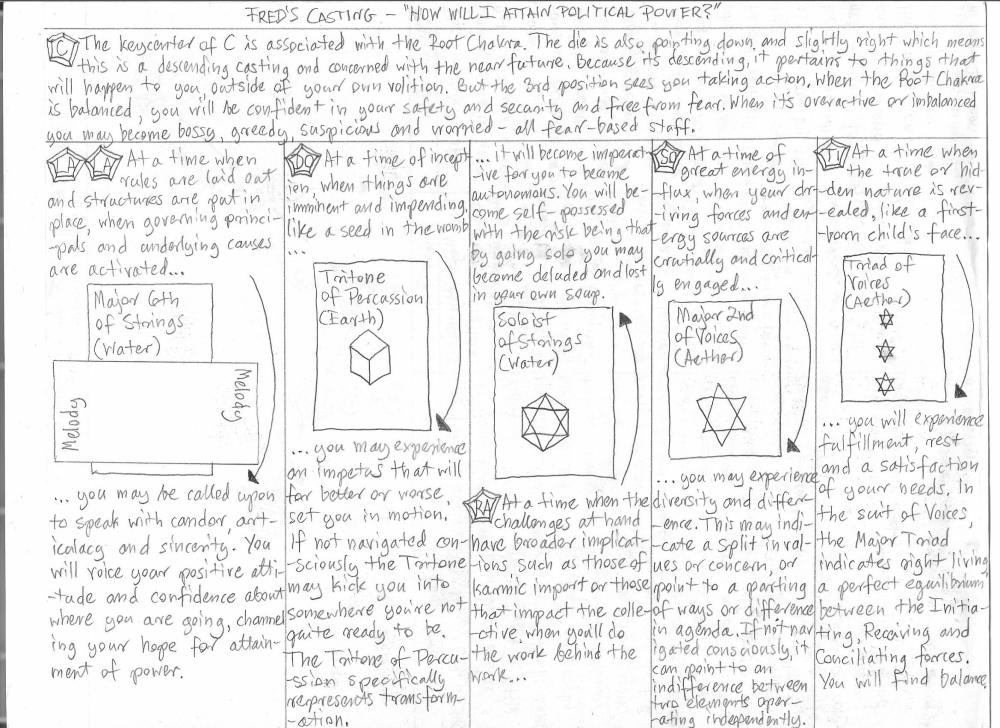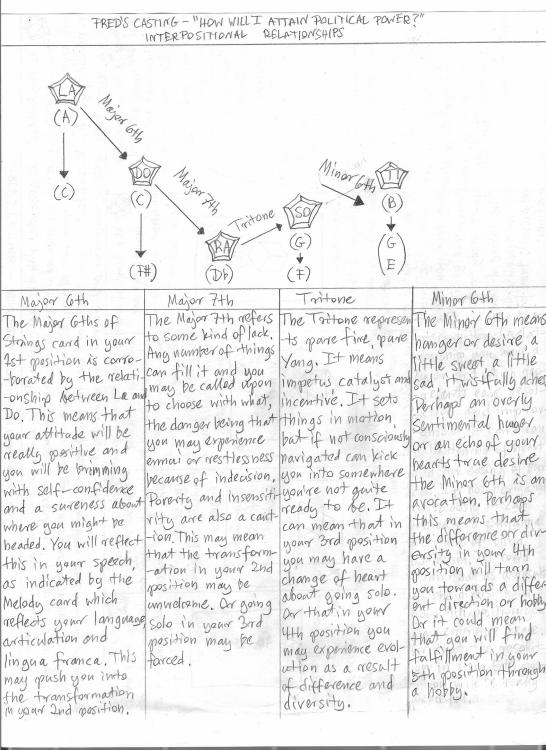All Activity
- Past hour
-

piano Is my Piano Prelude any good? (Recorded Performance)
Mooravioli replied to Mooravioli's topic in Piano Music, Solo Keyboard
Brotha Henry, Thank you truly for your kind comment. You have definitely helped me during it's compositional process, but in regards to the length of the piece, I have actually shortened it as opposed to adding on. Especially in the trio, I feel the material has become more concise and easy to digest. I've never even noticed the counterpoint in the G sharp minor section, does that mean I am now prepared to write a 6-part fugue in a krabby canon style? For the recapitulation, I needed something that will segue nicely into the original tempo, and that means slowly increasing speed using the offbeat figure. Thanks for commenting, as always. -
I've always prioritized voice leading in my chord construction; sometimes, I just slap a root on there and it works out! Thank you both for listening!
-

I wrote some variations on Dies Irae for string quartet
Monarcheon replied to 林家興's topic in Chamber Music
As a cellist, I personally like seeing the downwards arpeggio line, but I suspect Scriabin wrote it the way he did because he wanted to specify that the root(?) occurred on the beat. I see both having merit in different cases, but—generally—the arp. line is probably fine. -
PeterthePapercomPoser started following It was a dream (attemp at cinematic composition)
- Today
-
reminds me of old update 2.0 geometry dash levels. it sounds like something F-999 would make.
- 1 reply
-
- 1
-

-
Fruit hunter started following 2025 Halloween Satisfaction Survey
-
2025 Halloween Satisfaction Survey
Fruit hunter replied to PeterthePapercomPoser's topic in Monthly Competitions
So I was going to submit a piece it just did not fit the format anyways I enjoy having competitions. I think they are very fun and is a great way to inspire and showcase other people’s music. However, I am very inspired by how marching band competitions do things I’ll give you some ideas I do like having the idea of a specific theme but most marching band competitions Don’t really have themes so different entries do pee a lot, even some contrasting ideas from one band to another another good idea I have is some sort of classification system, usually in marching bands this is to keep a competition fair and not to give anybody an advantage. This is usually done with two variables, being size and skill level. (usually differentiating between A class and open class and having a number explaining the size I being the smallest V usually being the largest.) so a III A band is a medium size developing band compared to a V open which is basically it’s whole entire military unit on its own my idea for a classification system is just a differentiate from composition from the ensemble either being for a solo musician A small chamber work, a string, Orchestra concert band and large Orchestra Concert band and large orchestra may be scored in the same classification I do like the scoring rubric or like a specific format. I don’t really care about having a monetary award, but it would be fun knowing the precise points you earned from your piece so you could see where you can improve upon and also it’s just more fun for numbers (I like numbers for some reason.). So those are my ideas and feedback. -
therealAJGS started following God of speed (fast synth track)
-
Hi @Vasilis Michael! It's as good as your usual style with fleeting harmonic progression like the one go to Ab major at the start of B section of the Minuet in b.8. The Trio is really dreamy and definitely with Schubertian influence there, especially that turn to minor in b.56. Thx for sharing! Henry
- 1 reply
-
- 2
-

-

-
Hi @gaspard! Nice performance. I always get fascinated by early instrument performance with lots of ornaments. The Virginal is a beauty both for its acoustic and its look. English music was much more colorful than the Ars Perfecta back then. Thx for sharing! Henry
- 1 reply
-
- 1
-

-
Hey VInce, I like the simplistic style here and the smooth voice leading. I will make sure to try this on piano and record it. Henry
-
Henry Ng Tsz Kiu started following Benediction For Pope John Paul II
- Yesterday
-
PeterthePapercomPoser started following Benediction For Pope John Paul II
-
I'll get the words in, probably just in the soprano part for now: they are better than my music!
-
Churchcantor started following Benediction For Pope John Paul II
-
Benediction For Pope John Paul II Free Sheet Music by Robert C. Fox for Various Instruments | Noteflight
-

2025 Halloween Satisfaction Survey
Kvothe replied to PeterthePapercomPoser's topic in Monthly Competitions
@PeterthePapercomPoser I acted as if I was real judge in official competition. Entries have to meet the core requirements before passing onto the next round. So that is what I did first. I check to see if they meet the core requirements of the competition. If they failed, at least, I could look over the score help them. But it would go further than. If entries pass the first round, then, I come back and do score check and playability. Once that is done, I look at different textures, harmonies, and such. I notice the entries used a modern harmony: clusters, chords built on seconds, atonality, ect. I loved it. In the 20th century, traditional forms, we all used to, is throw out the window. So we have to be more creative with time, form, and structure. I have a feeling with next one: entries will be tonal. Hahaha -

2025 Halloween Satisfaction Survey
Kvothe replied to PeterthePapercomPoser's topic in Monthly Competitions
In competitions (formal or informal) judges will have template to use score entries. That is just a matter of fact. -
therealAJGS started following a weird composition
-
Thanks for checking this out! Depends on the idea, I don't have a formula. This time it was just about adding voices to an unchanging melody while keeping it very simple. Other times I build everything off of a harmonic progression. Sometimes a rhythmic cell is really interesting and it starts from there. But most importantly, I wish I had a better answer lol
-

How do I compose faster?
luderart replied to latebeethoven_addict's topic in Composers' Headquarters
1. Use a faster writing pen! 2. Use a faster computer/laptop. 3. Think faster. For some more serious advice: 1. Dedicate the time for composition. 2. Don't force yourself to compose. Let the inspiration come and you will compose. At least that's the way I approach it. I have heard others advise that you have to start composing and the inspiration will follow. But for me, it isn't like that. 3. For inspiration: a) Listen to other composers' music. b) Check for calls for scores and competitions. These will give you ideas for composition. -
.thumb.png.8b5b433a341551e913a34392660bc95b.png)
How do I compose faster?
PeterthePapercomPoser replied to latebeethoven_addict's topic in Composers' Headquarters
I think this question comes from the wrong place philosophically. When one asks the question "How do I compose faster?" one is really treating themselves like a machine, the assumption being that the more trial and error, the more one learns. Take this anecdote: While this anecdote addresses the concept of craft, it doesn't really get at inspiration. I believe that the question any artist or composer should really be asking themselves is "How do I enjoy music more?" or "How do I enjoy writing/creating more?". Without addressing this question one is quickly going to crash into a wall called "burnout". The pattern behind one's creative output is likely to become something akin to this: 1) Overexertion 2) Exhaustion 3) Creative stagnation 4) Increased self-doubt 5) Repetition. Asking the question "How can I enjoy music more?" will lead the composer towards music that they want to emulate, setting up a pattern of: 1) Discovery 2) Epiphany 3) New utility 4) Integration (or Refinement) 5) Sharing 6) Repetition (I won't lie, I partially used Google Gemini to help me come up with more healthy creative habit steps) -
A speed composition i made. Any feedback is welcome. Thanks.(made in a few hours)
- Last week
-
Hello my dear composers. Here my 3rd movement of my Piano sonata no 2. A Menuetto with Trio . I hope you like it
- 1 reply
-
- 2
-

-
My first electronic track. Any feedback is welcome. Thanks for listening.
- 1 reply
-
- 1
-

-
I think it's a pretty good piece of music, so I'm satisfied with the result... 😄 It seems that blatantly copying someone's style is not my real superpower at all... Thanks again!
- 10 replies
-
- 2
-

-
- piano music
- romantic music
-
(and 2 more)
Tagged with:
-
In the beginning and throughout the piece you set a consistent mood, which for me makes it sound like VGM. But then the way you use rhythms and ornaments from 0:46 on makes it sound more Baroque to me.
- 10 replies
-
- 1
-

-
- piano music
- romantic music
-
(and 2 more)
Tagged with:
-
Anyway, jokes aside, maybe I’m just being ignorant, but lately I’ve been listening to a lot of Baroque music, and the trills in those pieces sounded more like groups of four sixteenths or thirty-seconds rather than triplets, the way I used them, or sometimes they had an even more intricate structure. But I could be wrong about that. To me, my piece doesn’t sound particularly Baroque, neither melodically nor harmonically. I actually feel it’s more Romantic than Baroque, though it’s true that it’s not really Chopin-like or Liszt-like either. Does it remind you of the Baroque style? Which part exactly? Thanks again!
- 10 replies
-
- 1
-

-
- piano music
- romantic music
-
(and 2 more)
Tagged with:
-
Fred's Casting - "How will I attain political power?"
chopin replied to PeterthePapercomPoser's topic in Chamber Music
Fun motif, and interesting instrument choices. I like how you abruptly change the mood from fast, upbeat -> slow and dramatic. This is the same technique I use in my Mario musicals actually. I make Peach seem all innocent and sweet, then the next scene, BAM, I have her change her attitude. I feel that this technique adds a shock value for the listener or viewer. You are doing the same thing with your harmony and rhythms by abruptly shifting both, which keeps the music unpredictable. Even though your music is unpredictable with that regard, it's still well structured, and easy to follow.- 1 reply
-
- 1
-

-
Perhaps my most intriguing Muzoracle casting to date - Fred asked the Muzoracle "How will I attain political power?". (Muzoracle is a storytelling/divination tool similar to the Tarot card deck, but with cards with musical concepts and 12-sided Musician's dice and Solfege dice.) My interpretation of the cards and dice are displayed below. Since two strings cards were dealt in the 1st and 3rd position, I used Violin and Cello. In the 2nd position I dealt a Tritone of Percussion so I used a Clavichord. In the 4th and 5th positions I dealt a Major 2nd and a Triad of Voices, so I used choir. If you'd like to find out more about Muzoracle and how castings are interpreted go here: https://muzoracle.net/ This short musical interpretation of Fred's Casting is about a minute and a half long. The piece is in C major since the black musician's die landed on C. I then made the following melodic/harmonic underdrawing that I used in the composition of the music. To fill out the piece harmonically I included Roman numeral interpretations of each of the dyads/positions in the casting. Since the piece starts with strings I used Violin, Cello and Harpsichord in the first three positions. The voices then come in on the 4th and 5th position. The Triad card is normally supposed to be interpreted as a major triad, but since this was a descending casting and the position where the triad card was dealt was descending I decided to interpret it in a negative harmony way, inverting the intervals of the triad downwards, thus producing an E minor triad based on B (Ti). Then, to conclude the piece I reversed the order of the chords in retrograde fashion to land back on the first chord at the conclusion, but reinterpreting it harmonically as a C major 6 chord. I also reinterpreted the triad as a major triad ascending from B (Ti). If you've gotten this far, thanks for reading! And I hope you enjoy listening to this short chamber work I wrote to represent Fred's Casting. Comments, critiques, suggestions, or observations are of course, always welcome. Thanks for listening!
-
But I invented the baromantic style. There's nothing wrong with that! I'm an innovator...
- 10 replies
-
- 2
-

-
- piano music
- romantic music
-
(and 2 more)
Tagged with:

.thumb.png.1e2763f479362bbb522da50d31ef2e50.png)






